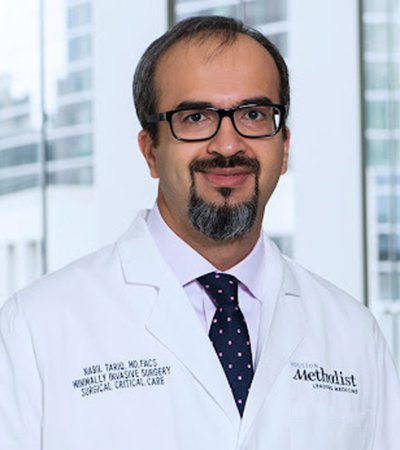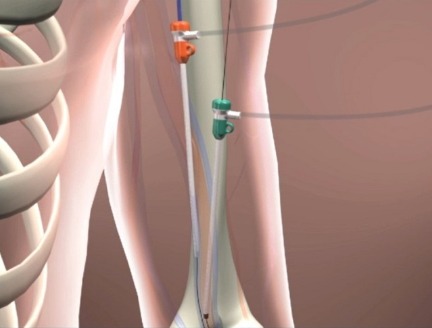



clinical research
Liver Transplant and Sleeve Gastrectomy Combine to Give Patients Hope
Liver Transplant and Sleeve Gastrectomy Combine to Give Patients Hope
With obesity exploding in the United States and endangering lives and longevity of Americans, experts at the Lynda K. and David M. Underwood Center for Digestive Health and the Houston Methodist Sherrie and Alan Conover Center for Liver Disease & Transplantation team have hope for patients who otherwise may die in the next six months. A proof-of-concept study shows interval-staged liver transplant and sleeve gastrectomy is a good option for high-risk patients who otherwise would not qualify for the procedures.

Nabil Tariq, MD
Houston Methodist is among the first of a handful of centers around the world to consider the procedure and the only one in Texas. “We feel encouraged enough, rather than excluding some of these patients altogether, we give them the option,” said Nabil Tariq, MD, who led the study published by the American Association for the Study of Liver Disease.

One of the things we do at Methodist is high risk candidates with end-stage organ failure who otherwise wouldn’t qualify for transplant.

Nabil Tariq, MD
Associate Professor
of Clinical Surgery
Fourteen cases were considered with 28 controls and including 60 percent who were critically ill prior to surgery. After one year, the patients experienced 74 percent body weight loss, and controls had 15.8 percent. Despite having higher BMI (body mass index), the study showed relatively equivalent results. “We are putting together two complicated surgeries. This option will give options,” Tariq said.
The interval-staged approach is done over two days as is a standard liver transplant. When the liver transplant is completed and the bile duct is connected, the patient must remain stable over the next 24 hours. “That’s when we add on the sleeve,” he said, taking an extra 25 or 30 minutes.
“It’s a relatively quick add-on to do,” he said, noting that more studies will be done to determine an optimal strategy for evaluating patients as early as possible and offering therapies to head off the need for future liver transplant or obesity complications. The hope is to help patients get access to obesity interventions earlier to help them lose weight and potentially treat obesity and prevent the need for transplantation in the later stages.
“One of the things we do at Methodist is high risk candidates with end-stage organ failure who otherwise wouldn’t qualify for transplant,” Tariq said, pointing out that Houston Methodist has been helping high-risk patients with innovative procedures for almost 10 years.
Share this story
Denise Hensley
January 2024







